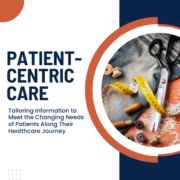AI Allies: How Artificial Intelligence Can Support Patients To Cope with Cancer
A cancer diagnosis can be both physically and emotionally challenging. As cancer patients learn how to cope with the disease[1] and manage side effects[2], artificial intelligence (AI) tools like ChatGPT are emerging as valuable allies. This article explores ten ways ChatGPT can help you manage your cancer journey more effectively.
What is ChatGPT
ChatGPT is an AI language model developed by OpenAI[3], designed to simulate human-like conversation. Think of it as a smart chatbot that can craft responses that sound like they came from a person all based on what you ask or tell it.
ChatGPT 4 is the latest version, offering advanced features and improvements over previous versions. [4] However, you have to pay to get the full benefits of ChatGPT 4. ChatGPT 3.5, though older, is still available for free and is a reliable option for those who don’t need the full capabilities of ChatGPT 4.
Are there Alternatives to ChatGPT?
Yes, several other chatbots and AI language models can understand and generate human-like text. Examples include Microsoft Copilot and Perplexity.ai.
10 Ways To Use ChatGPT to Cope with Cancer
1. Explaining Medical Terms
Medical jargon can be confusing. ChatGPT can break down complex terms into understandable language. For instance, you could ask, “What does ‘carcinoma’ mean in simple terms?” This can help you understand essential terms without feeling overwhelmed by medical language.
2. Detailing Treatment Options
ChatGPT can provide an overview of various treatments. For example, you might ask, “Can you explain the different types of chemotherapy?” Understanding your options can empower you to make informed decisions about your care.
3. Treatment Side Effect Management
Knowing what to expect from treatment can ease anxiety. ChatGPT can inform you about common side effects and how to manage them. For instance, you can ask, “How can I manage nausea during chemotherapy?” ChatGPT can provide detailed, user-friendly responses, helping you prepare for and cope with treatment side effects.
4. Medication Questions
Managing cancer medications can be complex, especially with multiple drugs involved. ChatGPT can help you understand your medication schedules, potential interactions, and what to do if you miss a dose. Sample questions might include, “Are there any foods or drinks I should avoid while taking this drug?” or “What should I do if I miss a dose of my cancer medication?”
5. Managing Stress and Anxiety
A cancer diagnosis can take a heavy emotional toll. It’s common to feel anxious, fearful, and uncertain, and having a supportive resource can greatly reduce these feelings. ChatGPT can serve as a virtual companion, available 24/7. While it cannot replace human interaction, it can offer a comforting presence during lonely or anxious moments. For instance, you might express, “I’m feeling overwhelmed,” and in return receive a supportive response such as, “I’m here for you. Let’s discuss what’s troubling you.”
6. Finding Resources and Support Groups
ChatGPT can suggest resources, including support groups and educational materials, to help patients connect with others and stay informed. It can be helpful to ask, “Can you recommend any online support groups for cancer patients?”
7. Exercise Recommendations
Engaging in exercise while undergoing treatment can enhance both your emotional and physical health by boosting your mood and energy levels. If you ask ChatGPT, “What are some safe exercises for someone undergoing cancer treatment?” it will give you some suitable options.
8. Nutritional Advice
Proper nutrition can support your body’s healing process and improve your overall health. Ask ChatGPT, “Can you recommend a diet that supports cancer treatment?”
9. Preparing for Doctor Visits
ChatGPT can help you prepare questions for doctor visits so you can get the most out of your appointments. For instance, you might ask, “What questions should I ask my oncologist about my treatment plan?”
10. Symptom Tracking and Management
ChatGPT can provide tips on how to monitor and manage your symptoms more effectively. For example, you could ask, “How can I track my symptoms and know when to call my doctor?” This can help you stay proactive about your health.
How to Ask Clear Questions to ChatGPT
If you want the best responses from ChatGPT, it’s important to ask questions that are clear and specific. Below are some tips to help you do this.
- Be specific: Clearly state what you want to know. Instead of asking, “Tell me about cancer,” ask, “What are some common side effects of breast cancer treatment?”
- Provide context: Give background information if relevant. For example, “I am undergoing radiation therapy for lung cancer. What side effects should I expect?”
- Ask follow-up questions: If the initial response isn’t comprehensive, ask additional questions to get more detailed information.
Using AI with Discernment: A Word of Caution
While ChatGPT can provide valuable support, it’s important to use it with discernment. AI is not a doctor; it’s a sophisticated algorithm designed to process and generate human-like text. As much as ChatGPT aims for accuracy, it may occasionally produce incorrect or outdated information. Always cross-check with reputable medical sources before making decisions based on AI advice. As AI continues to evolve, its role in healthcare will likely expand[5], but human oversight remains indispensable.
[1] Optimizing ChatGPT: How Patients With Cancer Can Use AI as a Thought Partner | Cancer Nursing Today
[2] Artificial intelligence chatbots will revolutionize how cancer patients access information: ChatGPT represents a paradigm-shift | JNCI Cancer Spectrum | Oxford Academic (oup.com)
[3] Introducing ChatGPT | OpenAI
[4] GPT-4 vs. ChatGPT-3.5: What’s the Difference? | PCMag
[5] Walker H, Ghani S, Kuemmerli C, Nebiker C, Müller B, Raptis D, Staubli S Reliability of Medical Information Provided by ChatGPT: Assessment Against Clinical Guidelines and Patient Information Quality Instrument J Med Internet Res 2023;25:e47479
URL: https://www.jmir.org/2023/1/e47479
DOI: 10.2196/47479

A Stanford Medicine X e-Patient scholar, Marie Ennis O’Connor is an internationally recognized keynote speaker, writer, and consultant on global trends in patient engagement, digital health and participatory medicine. Marie’s work is informed by her passion for embedding the patient voice at the heart of healthcare values. She writes about the experience of transitioning from breast cancer patient to advocate on her award-winning blog Journeying Beyond Breast Cancer.










